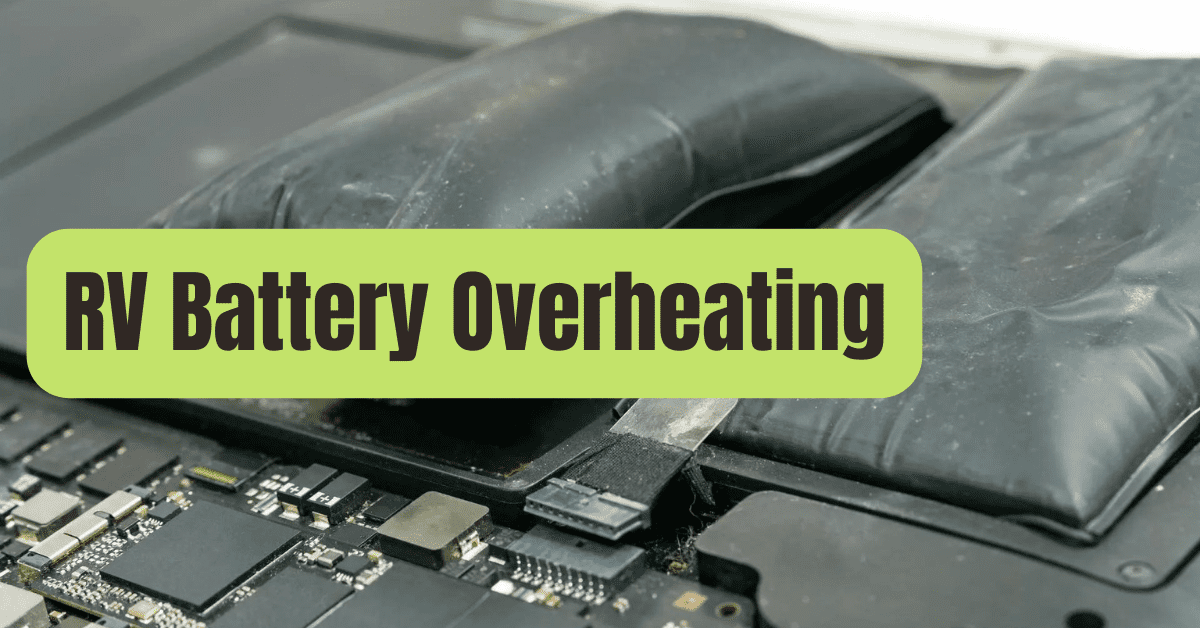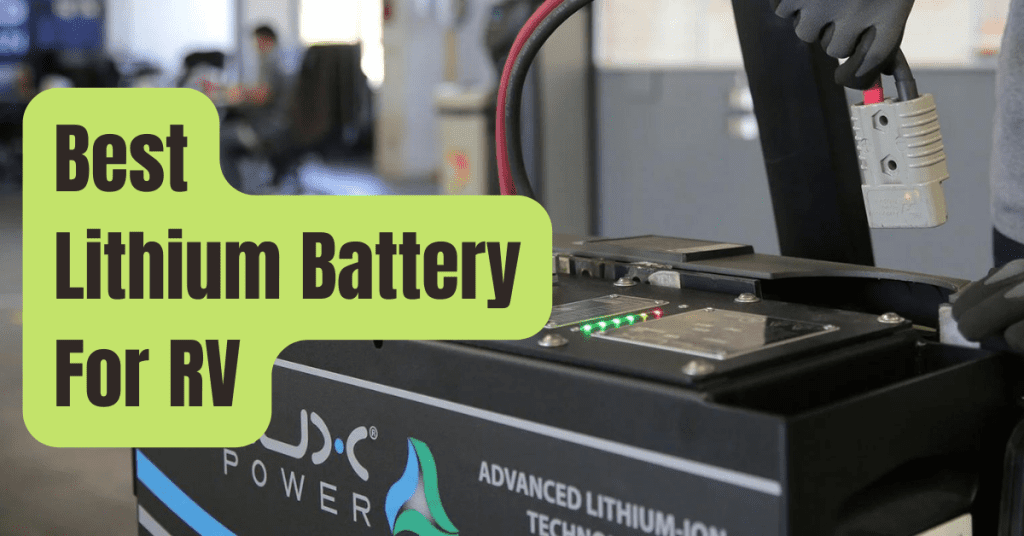RVs come in a wide variety of styles and dimensions.
You must have a battery charging system whether you purchase an RV from an RV manufacturer or convert one from an old bus or van.
Batteries in an RV may overheat.
Why is the battery in my RV heating up? There are three basic causes of RV battery overheating:
- Lead-acid batteries will heat up more when charging the older and more sulfated the battery gets.
- Encasing lithium batteries in a space without ventilation might lead to overheating while they are being charged.
- A problem with the charging mechanism itself may be the third cause, irrespective of the battery type. These flaws may lead to heat buildup and an overcharge of your battery.
When you need electricity, overheated batteries in your RV are not the only inconvenience.
A harmful battery may exist depending on the situation.
For this reason, fires and battery explosions have happened.
Learn more about overheated RV batteries and how to prevent it by reading on.
What Leads to Overcharging of an RV’s Charging System?
#1. Convertor Malfunction
In order to enable battery charging in an RV, a convertor converts AC power into DC electricity.
This is crucial if you want to charge your RV’s batteries using an AC power supply.
The battery will continue to receive electricity if the converter is destroyed and does not turn off when the battery is completely charged.
The RV batteries will heat up as a result of this overcharging.
#2. A defective Alternator
We may only consider undercharging a battery when an alternator is damaged.
The inverse may also be accurate.
Batteries may overheat if an alternator is operating at a certain voltage (often more than 14.5 Volts).
How Can Overheating Batteries Be Prevented in an RV?
#1. Overcharging
- As part of the routine maintenance for your RV, have the alternator examined. Regularly check for adequate voltage using a meter, either by hiring a technician or using one yourself. When you’re out in the bush, seeing the problem early on help prevent an incident. Keep in mind that you won’t have electricity if your batteries fail from overheating while you’re off the grid.
- When your batteries are full, many converters contain a voltage control that stops charging. Make care to verify the system’s functionality at least once a month.
- Make sure that your lead-acid cell batteries don’t run out of distilled water if they require water. When a battery starts to overheat, this may make it more difficult for it to cool down.
#2. Suitable Ventilation
In today’s RVs, the majority of lithium battery systems are designed to cut power with a warning if the battery overheats.
Although this is a smart concept for safety, it may leave you without power while the battery cools.
The majority of manufactured RVs provide enough ventilation to keep batteries cold, however aftermarket and do-it-yourself battery containers sometimes lack this feature.
Verify the ventilation of any battery storage in your RV by monitoring temperature readings until you are certain.
Which Batteries Work Best in RVs?
Two battery types are available for RVs that provide the dwelling portion of the vehicle sufficient power and longevity.
Both may be charged using solar energy, AC power conversion, and the alternator system of the car.
Every battery type has various advantages and disadvantages.
Let’s examine both and discover more about them.
#1. Battery AGM Deep Cycle
RVs and boats utilize lead-acid batteries of the AGM deep cycle kind.
It differs from a typical starting battery in that it primarily powers lights, fans, and other necessary components.
#2. Battery Types: Lithium
These rechargeable batteries are yet another kind that are used in recreational vehicles.
As their name suggests, they are lithium-based and have gained popularity among RV owners in recent years, particularly those who desire to spend a lot of time off the grid.
#3. Deep-Cycle Battery Advantages And Disadvantages
Pros:
- A huge load may be operated on AGM Deep Cycle batteries thanks to their high power output.
- Since these batteries are sealed, they won’t leak or spill.
- More quickly recharge than any other flooded battery.
- Length of time In the finest cases, these batteries may last up to ten years.
- Given that an RV needs two to four batteries to sustain its power, the fact that these batteries are less costly than lithium batteries is significant.
Cons:
- There are restrictions on what may be run on them, particularly simultaneously.
- Over time, they are prone to lose their power to charge
- They are vulnerable to overcharging damage.
#4. Lithium Battery Advantages and Disadvantages
Pros:
- Lithium batteries’ amp hours enable them to power several equipment in an RV for extended periods of time.
- A lithium battery may be made smaller by carrying many times the energy of traditional batteries.
- Unlike deep cycle batteries, lithium batteries do not lose their charging efficiency over time.
- Due to the fact that lithium batteries may be discharged considerably longer than deep cycle batteries before charging, the cost per kWh is lower.
Cons:
- A lithium battery costs more up front.
- The batteries could be harmed if they are completely discharged.
- Because all batteries are sensitive to level charging. Lithium batteries need a charging management system.
- Need suitable cooling and ventilation to avoid overheating
Both of these sorts of systems are presumably endorsed by an equal number of individuals.
It will likely come down to your requirements and financial situation.
A deep cycle can be a preferable option if visiting parks with backup electric power.
Lithium is likely the best option if living off the grid in the mountains with just solar power and battery backup.
When Should an RV Battery Be Replaced?
How do you know when to change them, whether you’re using a lithium battery or a deep cycle battery?
- There is a predicted lifespan for each battery of a particular number of years. Change your batteries before the predicted expiry dates to prevent being trapped in the wild without electricity.
- A meter check can show you whether your RV battery is nearing the end of its useful life. When the battery is completely charged but only displays 12.5 volts or less, it is time to replace it.
- If a battery cannot be fully charged, it is likely towards the end of its useful life and has to be replaced.
- You should start considering a new battery when you completely charge your current one and notice that it loses power more quickly than it used to. Over time, this might be misleading since we forget how long the batteries lasted when they were brand new. Keep track of how long your batteries last throughout the first two years in your service journal.
- A new battery is definitely needed if the battery’s casing has obvious damage. When the batteries are not properly secured and are permitted to move while driving, this is typical in conversion RVs.
Conclusion
Understanding how to avoid battery overheating may not only prevent a fire danger in your RV but also save your life.
Your system will function correctly if you understand the cause of your battery’s overheating and take the appropriate care of it.
You should now be more knowledgeable about the many RV batteries that are available and which one is ideal for you and your charging system.










